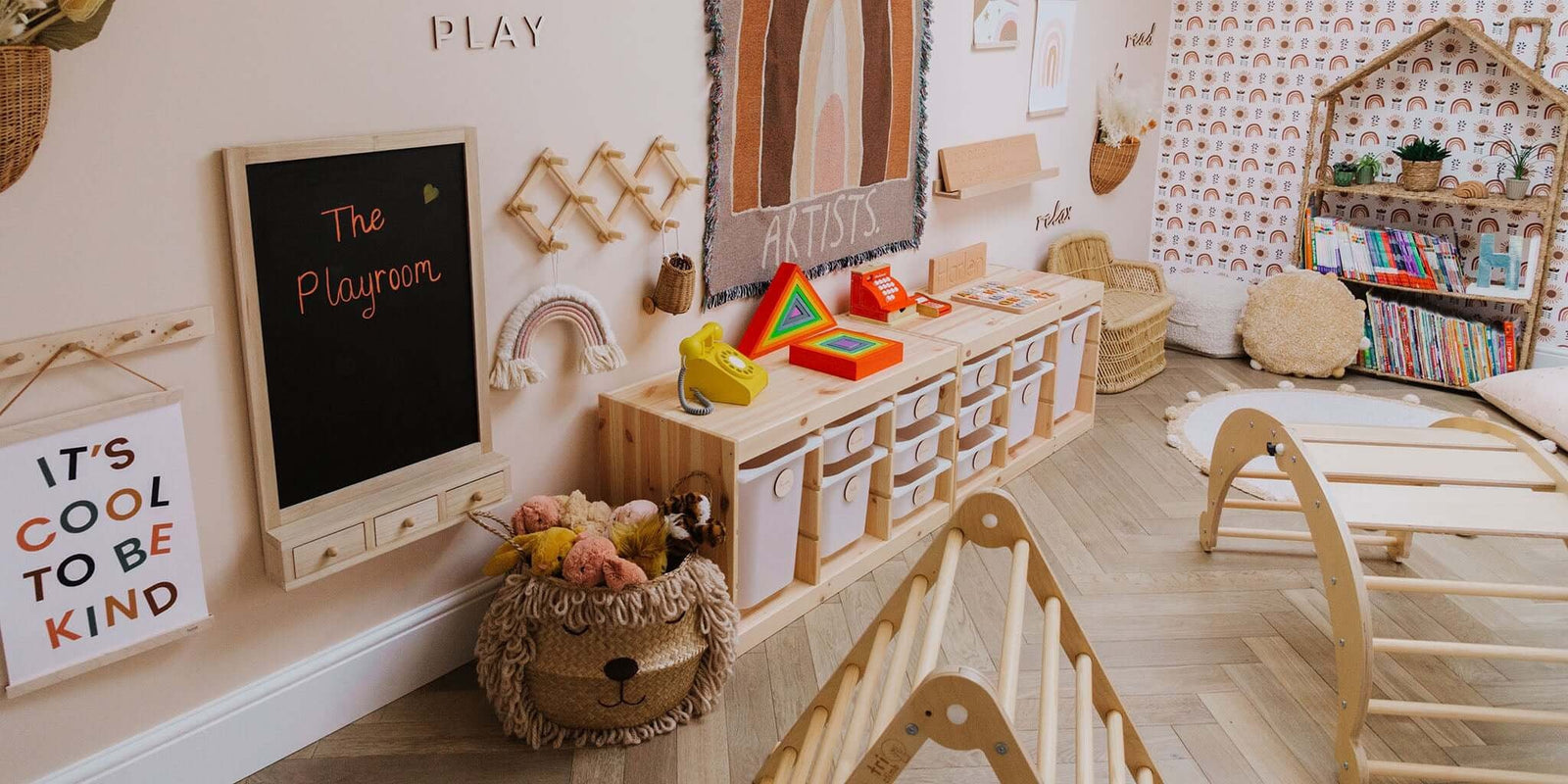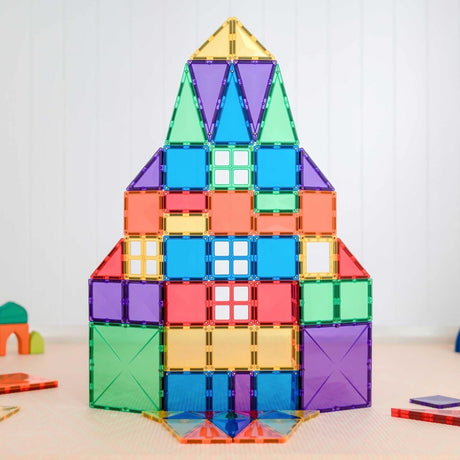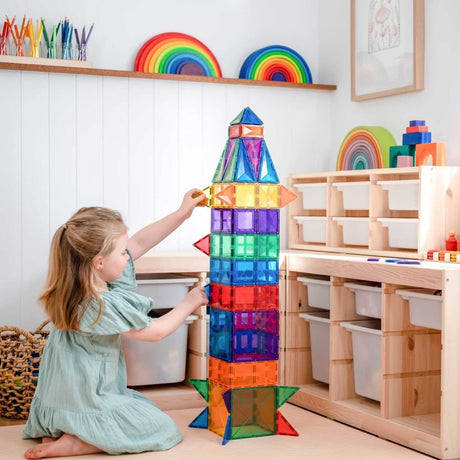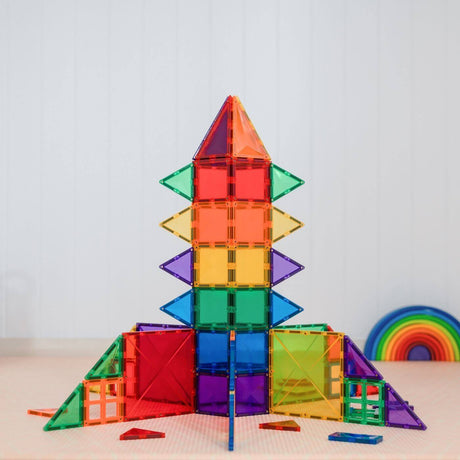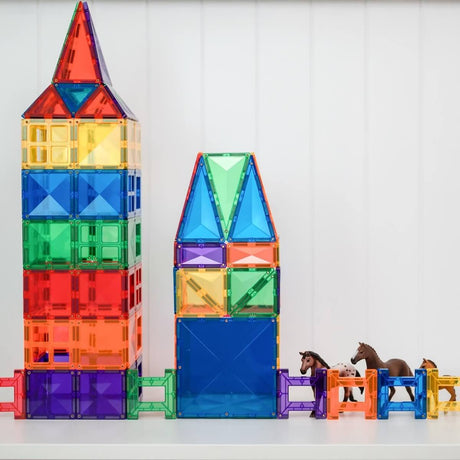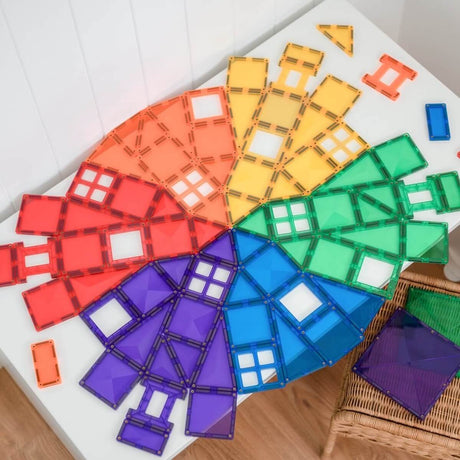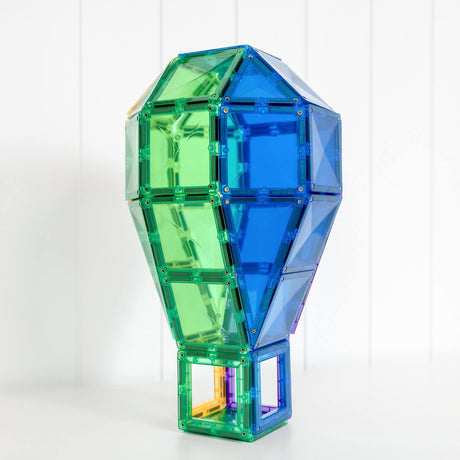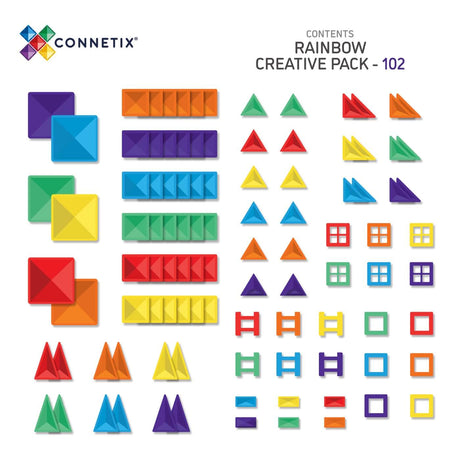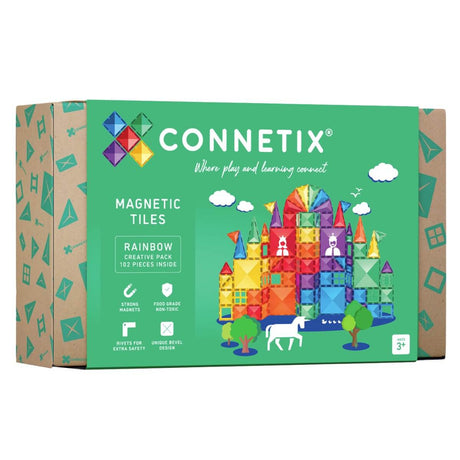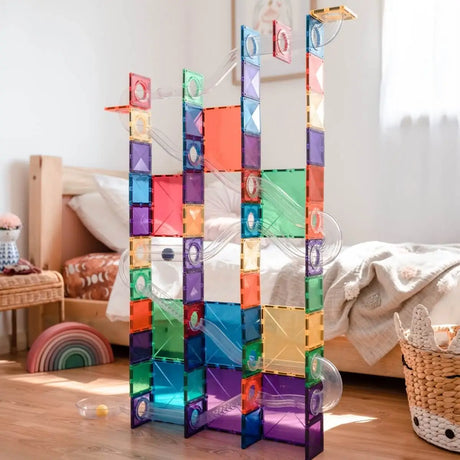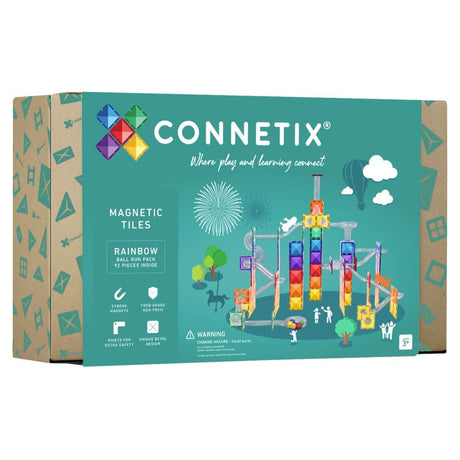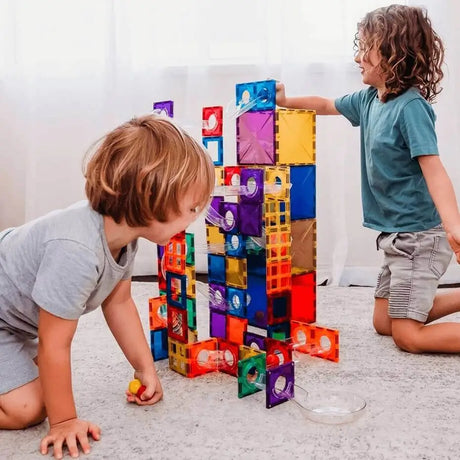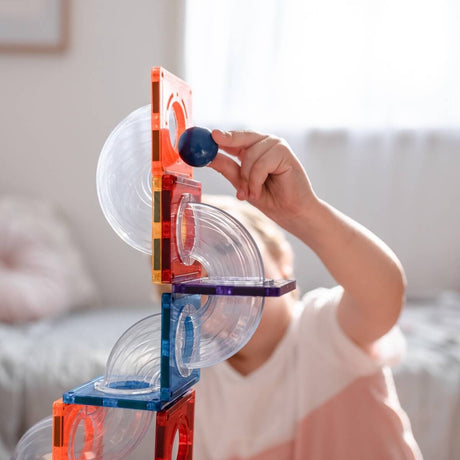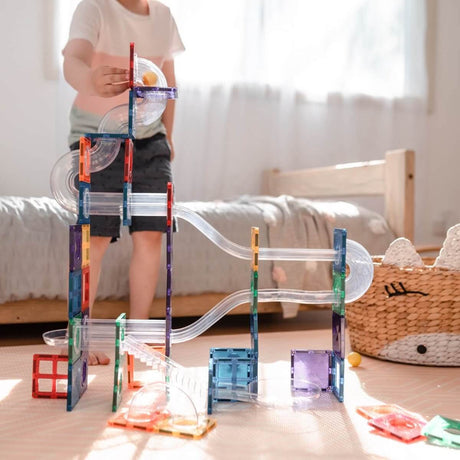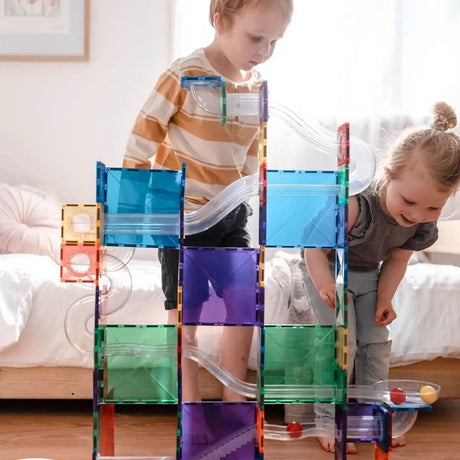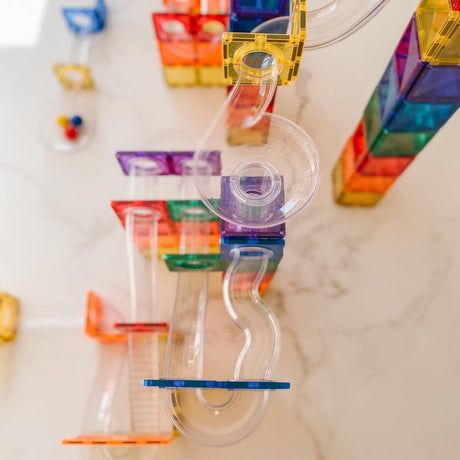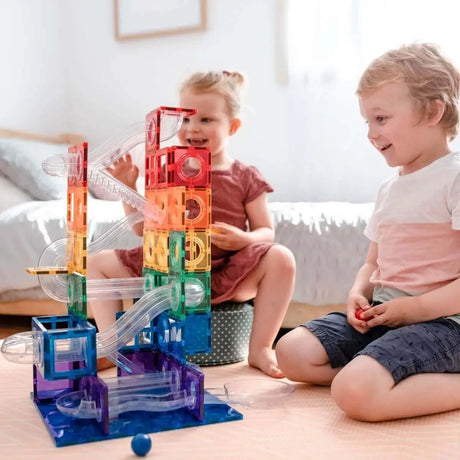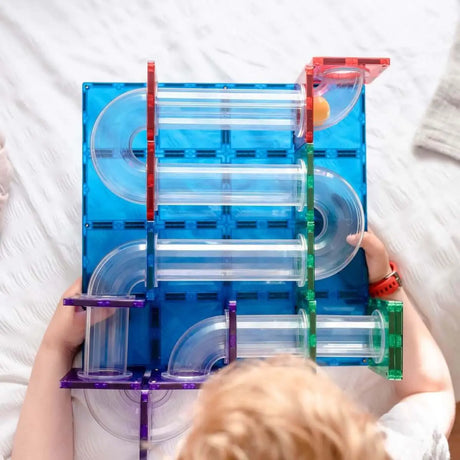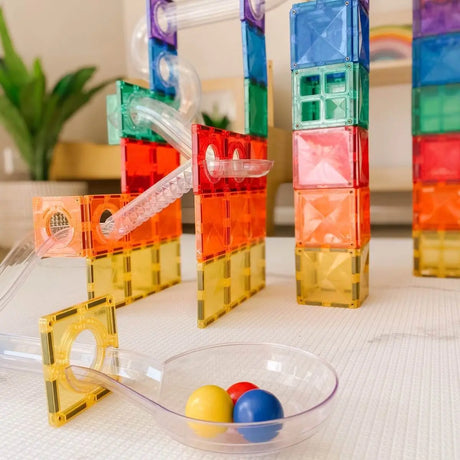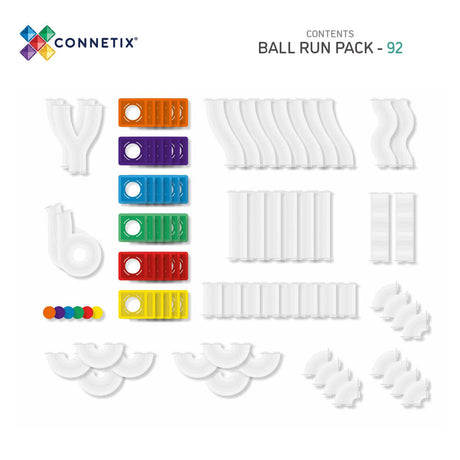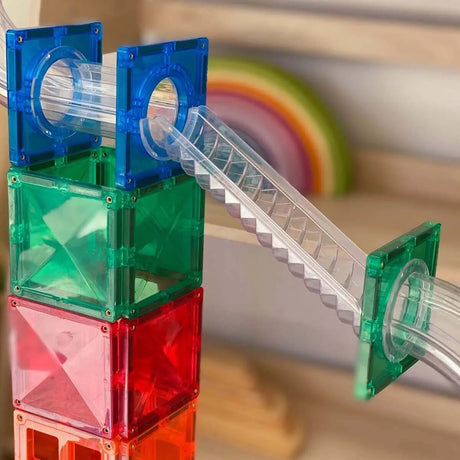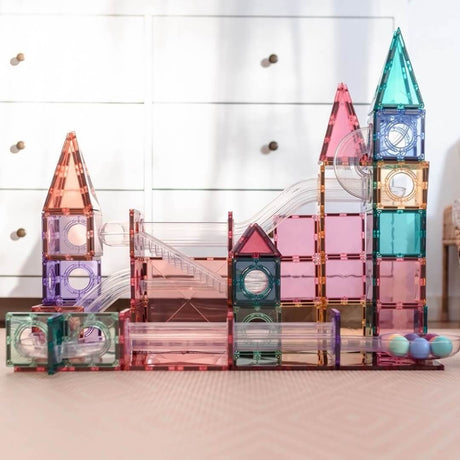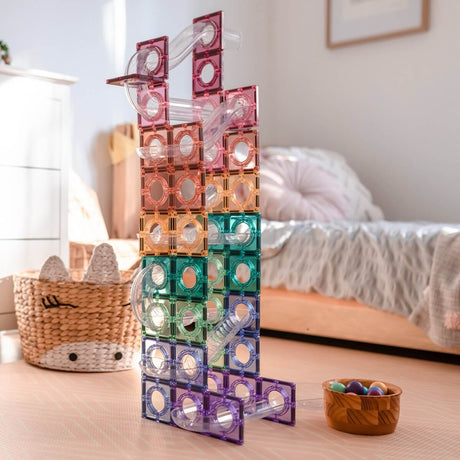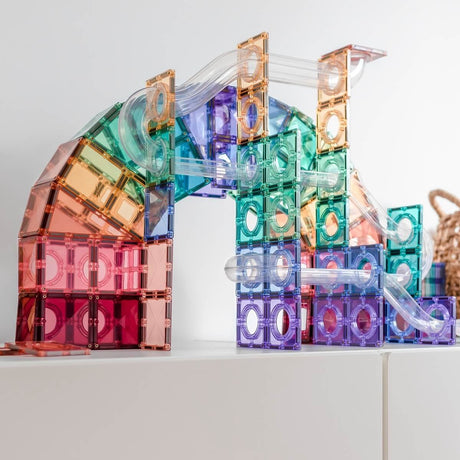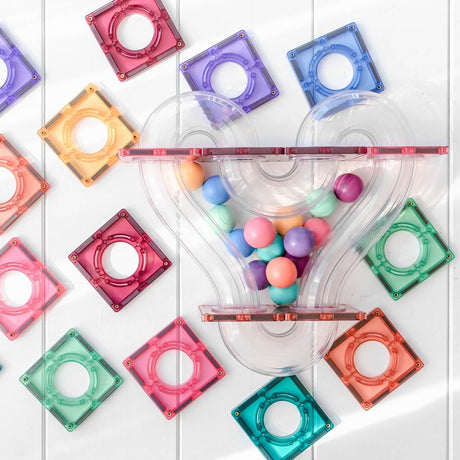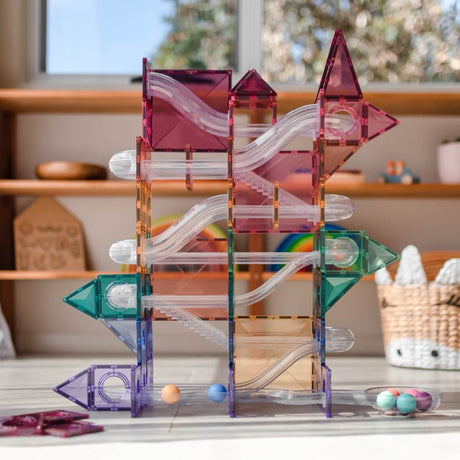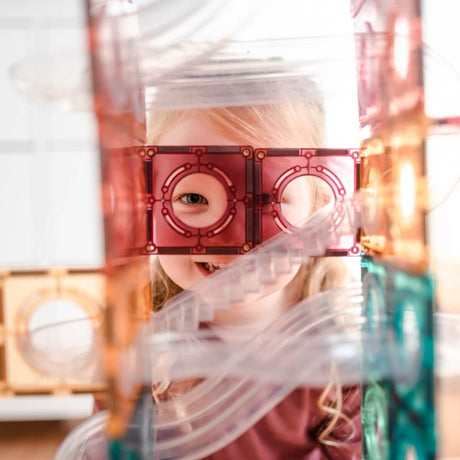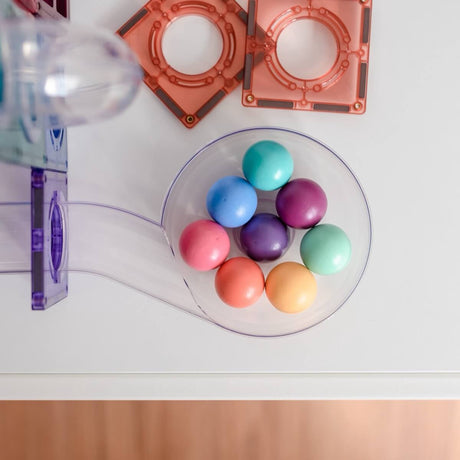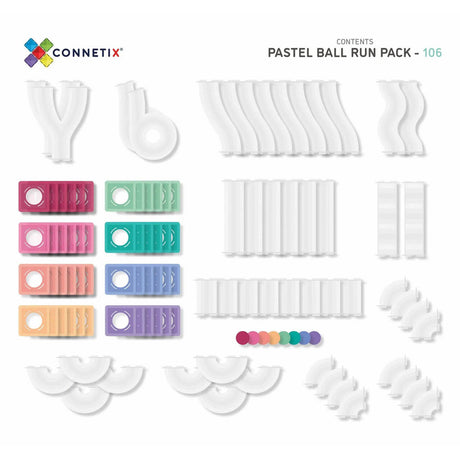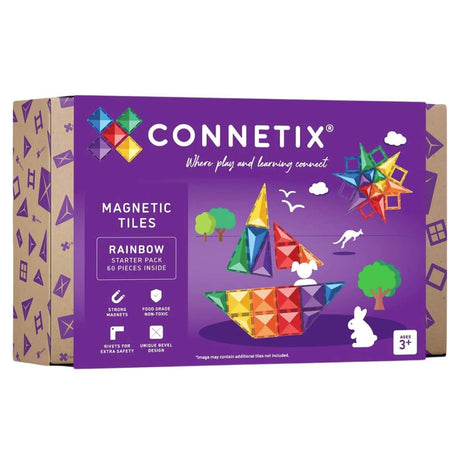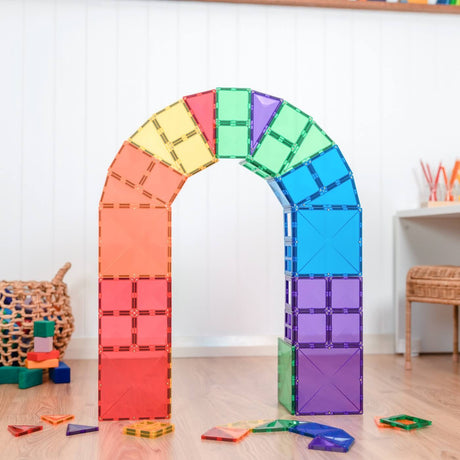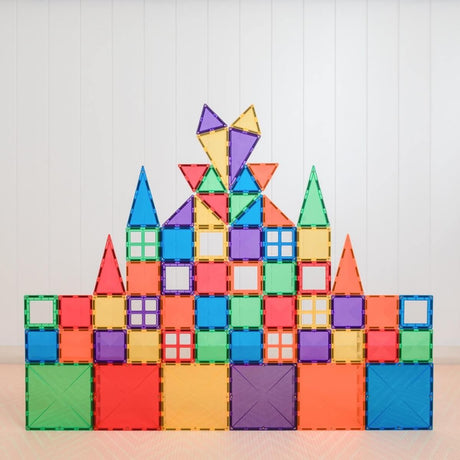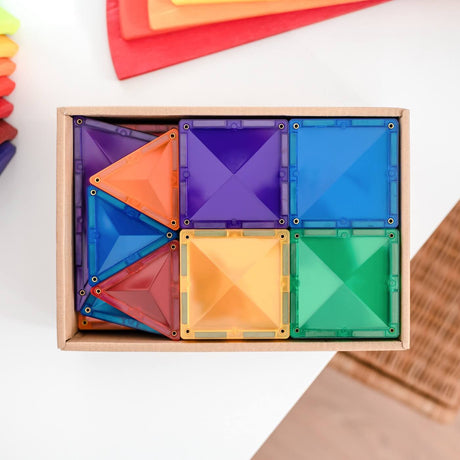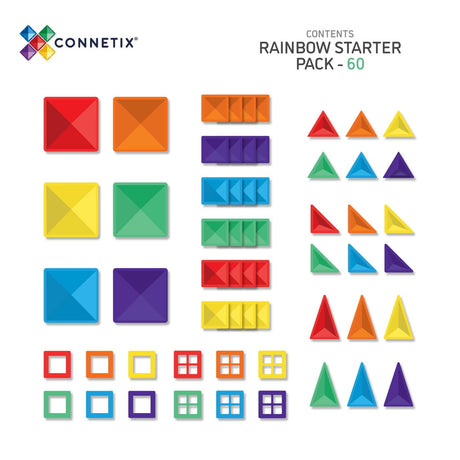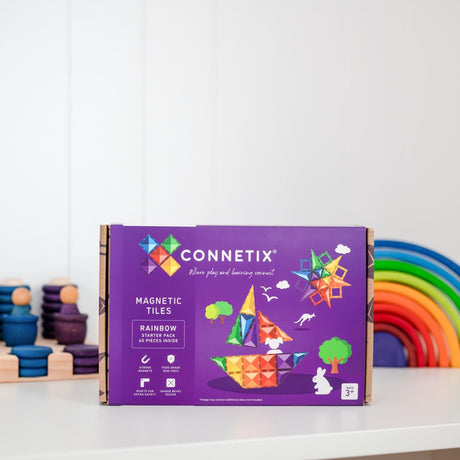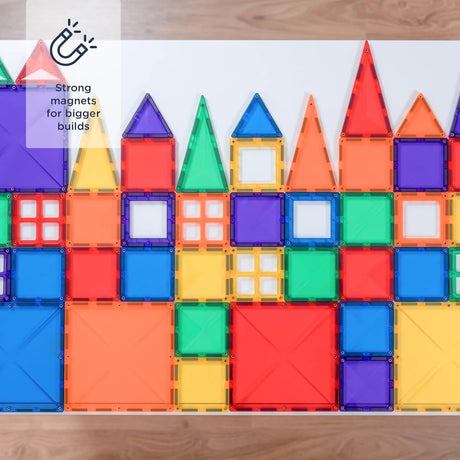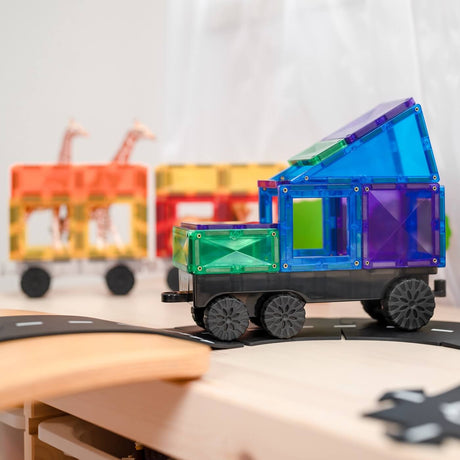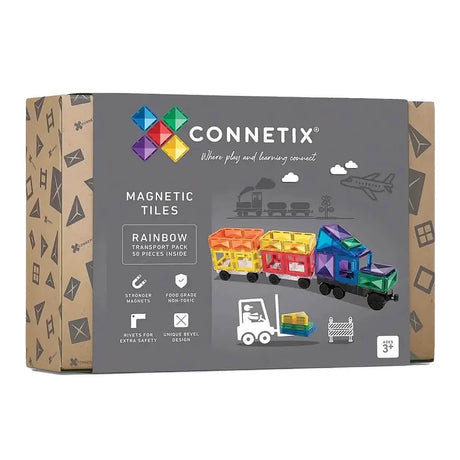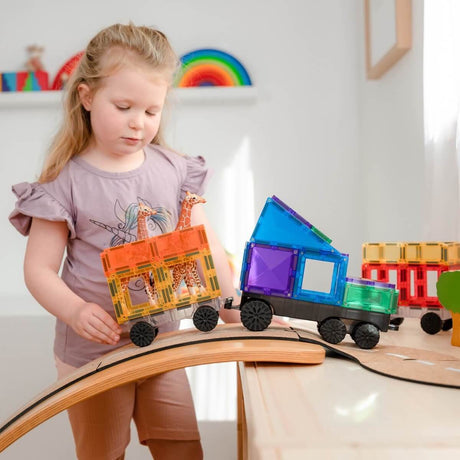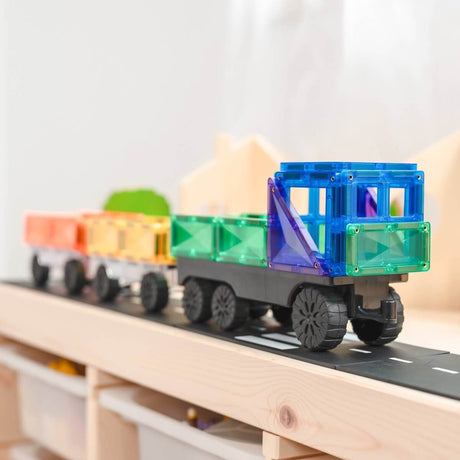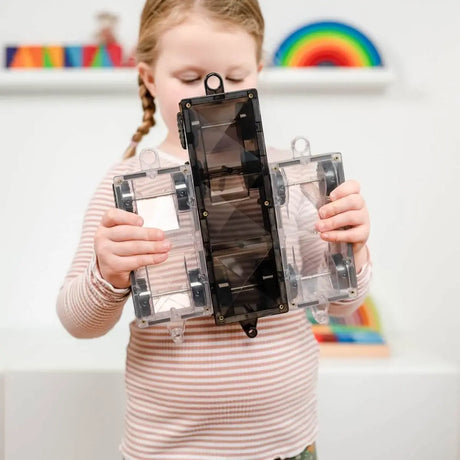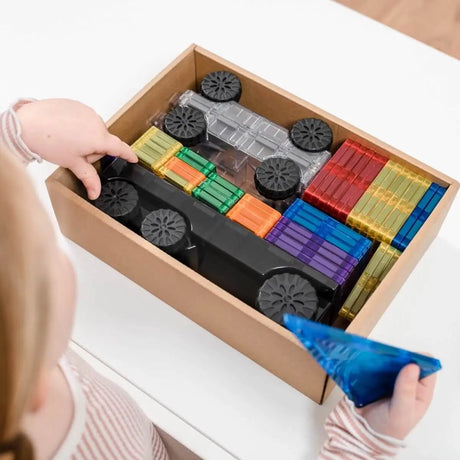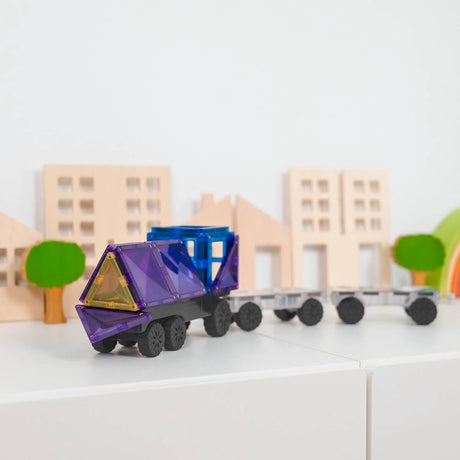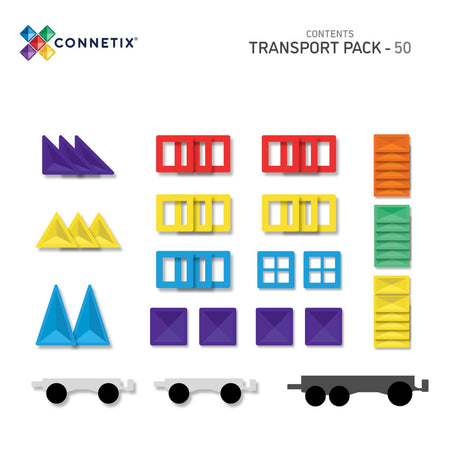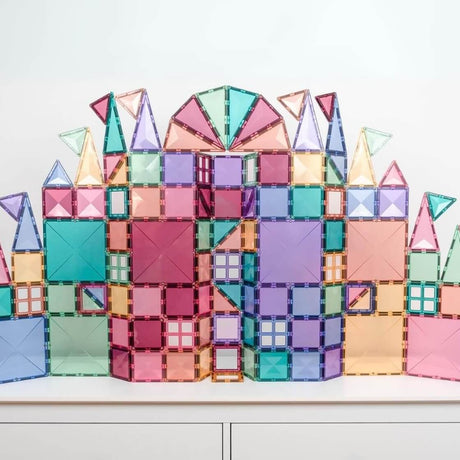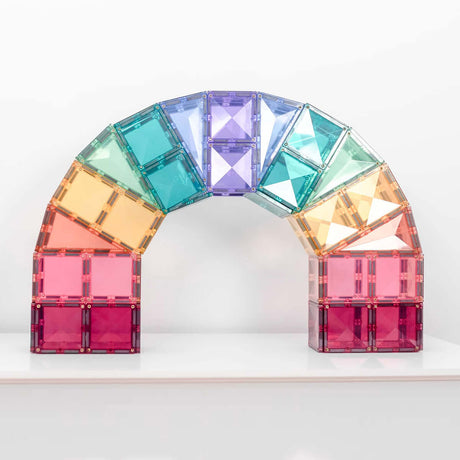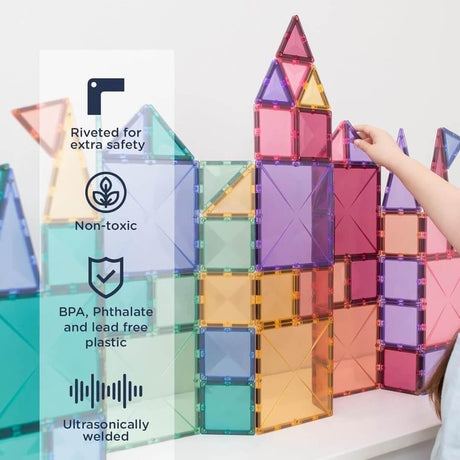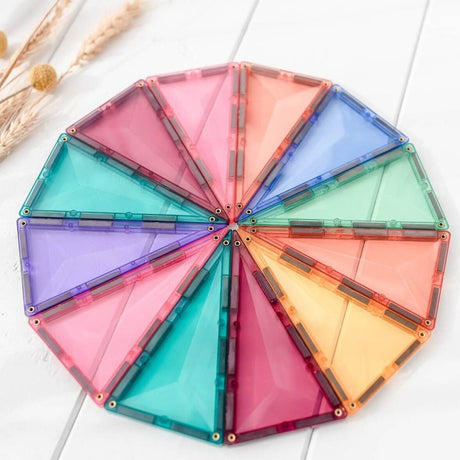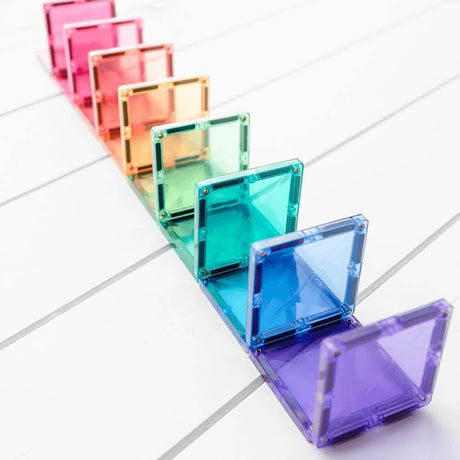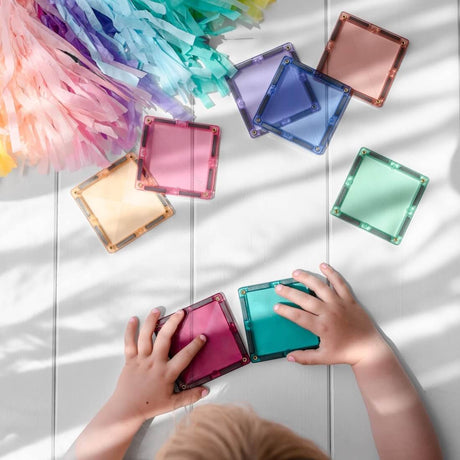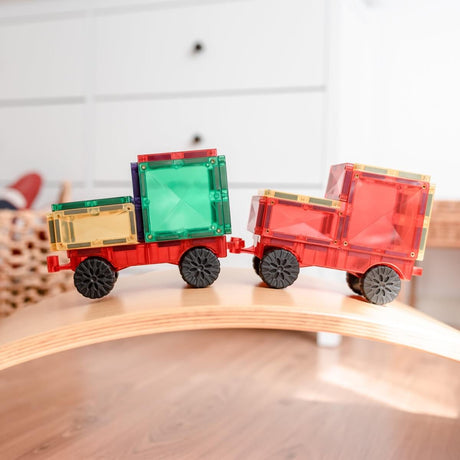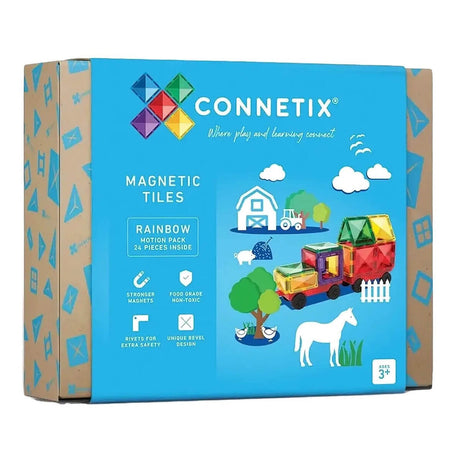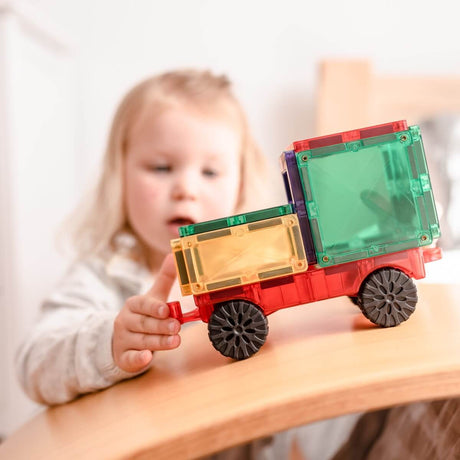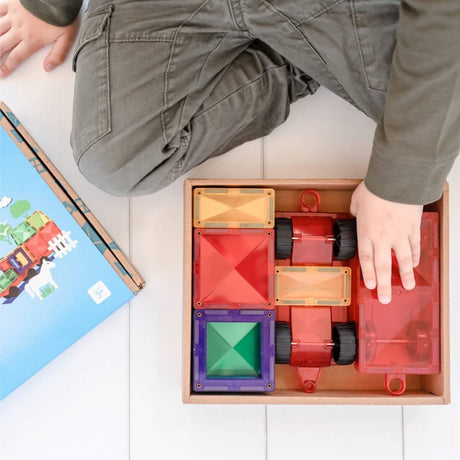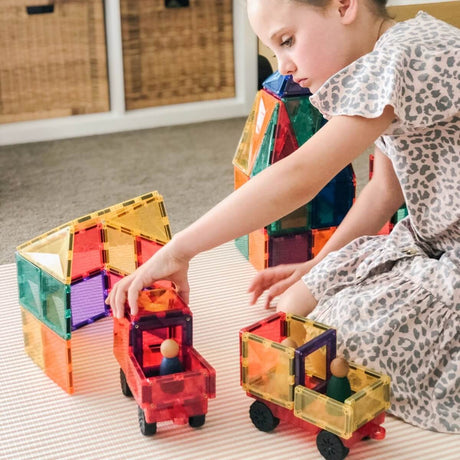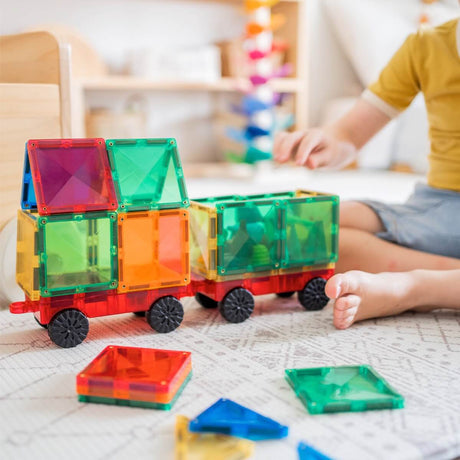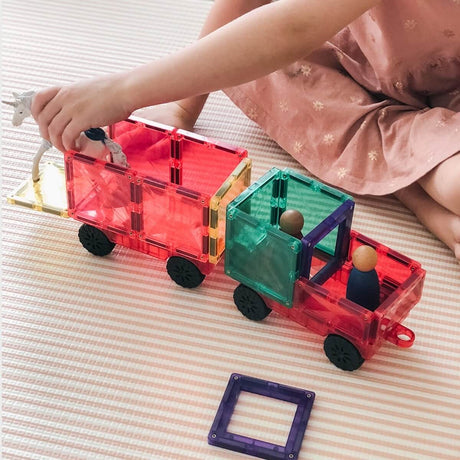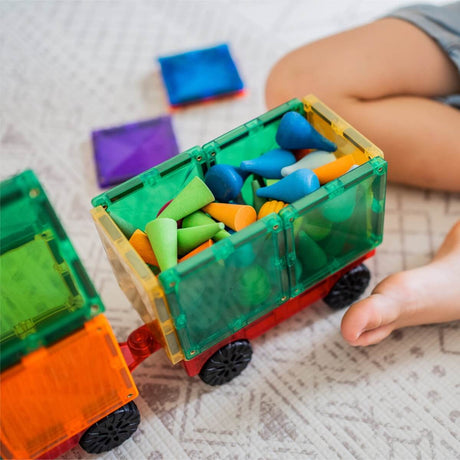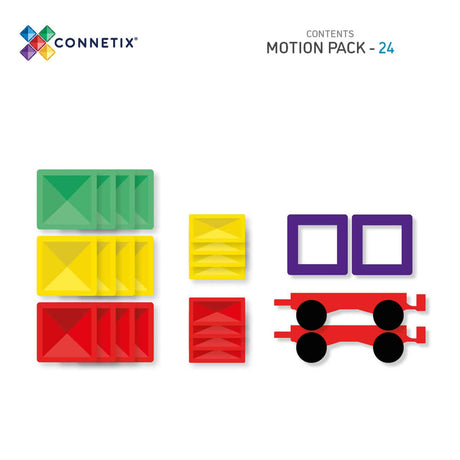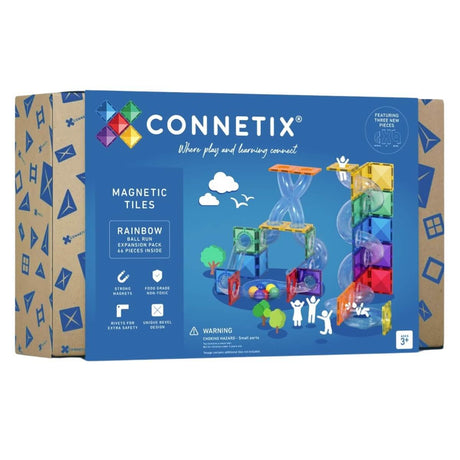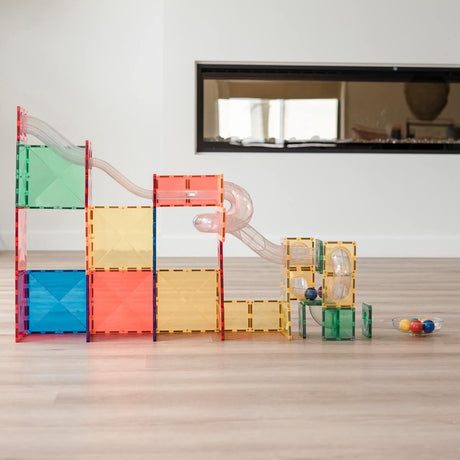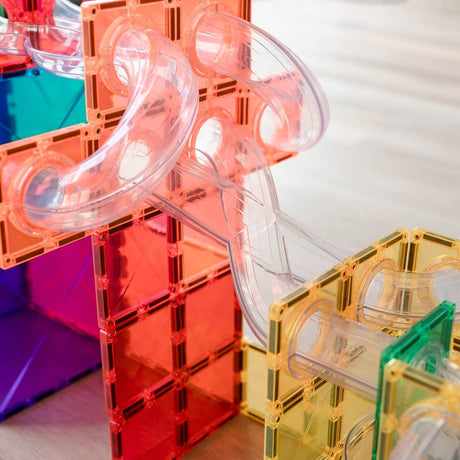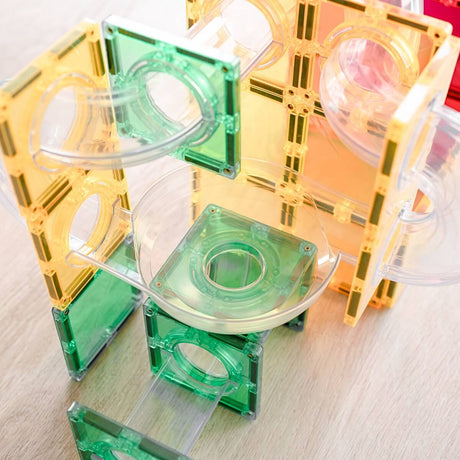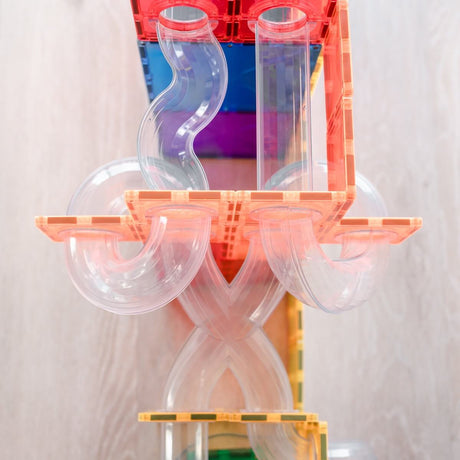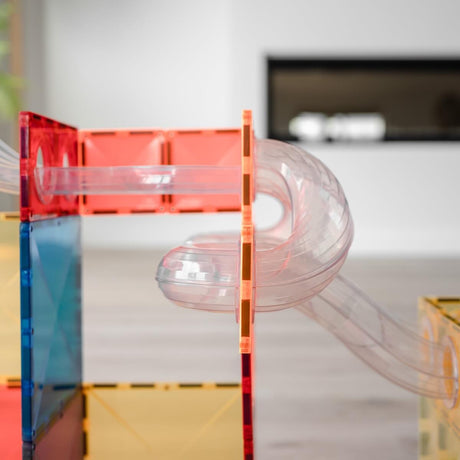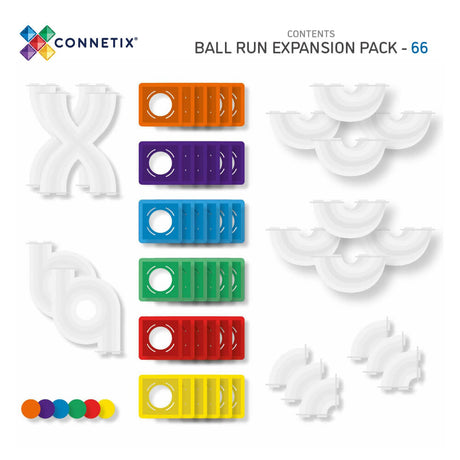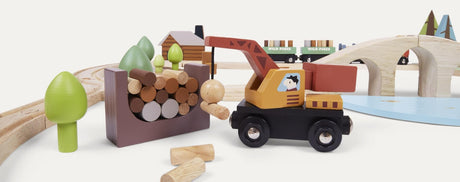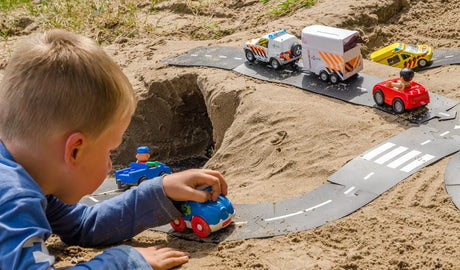Montessori pedagogy, created by Maria Montessori at the beginning of the 20th century, is based on the idea that children learn best in an environment adapted to their needs and their pace. Montessori toys play a crucial role in this educational approach.
In this guide, we will explore the different types of Montessori toys , their benefits and our recommendations for choosing them wisely.
The different types of Montessori toys
Montessori toys are designed to encourage independence, creativity and skill development. They are generally divided into several categories:
Sensory toys : These toys help children explore and understand their five senses. They include items such as shape boxes, tactile puzzles and sensory blocks.
Fine motor skills games : These toys allow children to develop their dexterity and hand-eye coordination. Popular examples include stringing beads, button puzzles, and fitting games.
Real-life pretend toys : Real-life toys encourage children to learn everyday skills. They include items such as small kitchen utensils, cleaning sets or gardening tools suitable for children.
Educational Toys : These toys are designed to help children develop academic skills, such as reading, writing, math and geography. Among them, we find magnetic letters and numbers, geographic map puzzles and calculation games.
Arts & Crafts Materials – Montessori toys also encourage artistic expression and creativity. Children can explore their imagination with toys such as painting sets, musical instruments or craft sets .
Benefits of Montessori Toys
Montessori toys have many benefits for child development:
Promote autonomy - They are designed to be handled by children without the help of an adult. They thus encourage autonomy and self-confidence.
Develop concentration - by providing challenges appropriate to the child's age, which helps them develop concentration and perseverance.
Stimulate creativity - By offering toys that allow exploration and experimentation, Montessori pedagogy promotes the development of creativity and imagination in children.
Improve coordination and motor skills - Montessori toys are designed to develop fine motor skills and hand-eye coordination, essential skills for a child's overall development.
Tips for Choosing Montessori Toys
Here are some tips for choosing the right Montessori toys for your child’s needs:
Consider the child's age : Make sure you choose toys appropriate for your child's age, taking into account their skills and interests. Montessori toy manufacturers generally offer age ratings on their products.
Prioritize quality and durability: Opt for quality toys, made with durable and ecological materials, such as toys made of wood or organic materials. They will last longer and be safer for children.
Promote simplicity and versatility : Choose simple toys, without too many parts or accessories, that offer several play possibilities. This will encourage the child to use their imagination and explore different ways of using the toy.
Avoid toys that are too noisy or bright : Montessori toys aim to stimulate the child's senses in a harmonious way. Avoid toys that make loud sounds or flashing lights, as these can be distracting and stressful for the child.
Encourage parental participation: Although Montessori toys are designed to allow the child to learn independently, it is important that parents become involved in the learning process. Play with your child, guide them and encourage them to explore and discover for themselves.
By following these tips, you will be able to choose the Montessori toys best suited to your child, thus promoting their overall and harmonious development. Montessori toys are much more than simple objects of entertainment, they constitute real learning tools which contribute to the development and growth of the child.
Montessori Toys for Babies and Toddlers
Montessori toys are particularly suitable for babies and toddlers, from birth to 2 years old. At these ages, it is important to choose toys that stimulate their senses, encourage discovery of their environment and develop their motor skills.
Here are some examples of Montessori toys suitable for toddlers :
Rattles : Montessori rattles are generally made of wood and designed to be easily grasped by little hands. They encourage fine motor skills and hand-eye coordination.
Play mats : Montessori play mats provide a safe and stimulating space for babies and toddlers. They often include sensory elements, such as varied textures and colors, to encourage discovery and exploration.
Sorting & nesting toys : Suitable for toddlers, these toys help develop their hand-eye coordination and fine motor skills by inserting shapes into the corresponding locations.
Inset & pegged puzzles : Simple and attractive, button puzzles are perfect for toddlers. They encourage fine motor skills and problem solving by matching pieces to the correct locations.
Stacking toys : Stacking cubes allow toddlers to develop their gross motor skills, coordination and sense of balance by stacking and organizing cubes of different sizes.
Soft early learning books : Cloth books are ideal for babies and toddlers because they are easy to handle and resistant to chewing. They also stimulate language development and awareness of reading.
By choosing Montessori toys suitable for babies and toddlers aged 0 to 2, you will promote their sensory, motor and cognitive development from their first months of life, while respecting their learning pace and their natural curiosity. Remember to adapt the toys and activities offered to your child's age and skills to get the most out of Montessori teaching.
How to integrate Montessori toys into daily life
It is important to integrate Montessori toys into the child's daily life to get the most out of them. Here are some ideas to achieve this:
Create a suitable play space: Set up a specific play area for your child, with low, accessible shelves, where they can choose and store their Montessori toys independently.
Schedule regular play time: It is essential to dedicate time to play with Montessori toys. Schedule regular play times, during which your child can explore and learn at their own pace.
Vary the activities: Don’t hesitate to alternate the types of toys and activities offered to your child. This will allow him to develop various skills and maintain his interest.
Encourage Outdoor Exploration: Montessori toys aren't limited to inside the home. Encourage your child to explore nature and their outdoor environment with suitable outdoor toys , such as magnifying glasses, binoculars or gardening kits.
By integrating Montessori toys into your child's daily life, you will promote their development and growth in a fun and natural way.
Final Thoughts
Montessori toys are excellent tools to promote children's learning and development, in accordance with the principles of Montessori pedagogy. By choosing toys adapted to your child's age and needs, and integrating them into their daily life, you will contribute to their overall development.
Don’t hesitate to explore the different categories of Montessori toys, and vary the activities offered to your child to stimulate their curiosity, creativity and autonomy.
Montessori toys are much more than simple entertainment: they are real allies to support the child in their learning and discovery of the world around them.

